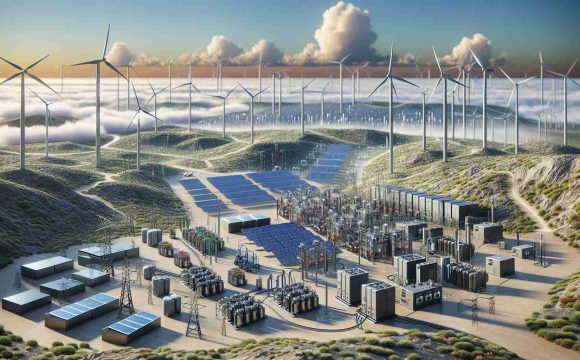Recurrent Energy Launches Groundbreaking Solar Plant in Colombia
Recurrent Energy has officially launched its Caracolí solar plant in Colombia, marking a significant milestone in the drive towards sustainable energy. This innovative 50 MW facility underscores the company’s dedication to fostering the energy transition and aligning with Colombia’s environmental objectives.
In collaboration with entities such as the Ministry of Mines and Energy, the CREG, and UPME, this project plays a pivotal role in transforming the country’s energy landscape. The Caracolí plant is set to produce substantial amounts of renewable electricity, enough to power thousands of homes across the nation. By doing so, it will contribute to a remarkable decrease in CO₂ emissions while bolstering the advancement of renewable energy infrastructure in Colombia.
Recurrent Energy has expressed sincere appreciation for the support received from the Colombian government and the collaborative efforts of all teams involved in this project. This partnership exemplifies a unified approach to creating a greener, more sustainable future for the country. With the Caracolí plant now operational, Colombia is one step closer to achieving its sustainability goals, showcasing the potential for renewable energy to contribute positively to the environment and the economy. The future of energy in Colombia is undoubtedly bright, illuminated by the power of the sun.
Recurrent Energy’s Caracolí Solar Plant: A Catalyst for Colombia’s Renewable Future
Overview of the Caracolí Solar Plant
Recurrent Energy has officially launched the Caracolí solar plant in Colombia, a cutting-edge 50 MW facility that marks a transformative step toward sustainable energy in the region. This new solar plant highlights the increasing commitment to renewable energy in Colombia, juxtaposed with the country’s ambitious environmental goals.
Key Features of the Caracolí Solar Plant
– Capacity and Output: The Caracolí facility is designed to generate enough electricity to power thousands of homes, significantly contributing to Colombia’s energy mix.
– Technological Advancements: The project employs innovative solar technologies that enhance energy conversion efficiency, making it a benchmark for future solar initiatives in the region.
– Grid Integration: The facility is equipped to seamlessly integrate with Colombia’s existing energy grid, facilitating efficient energy distribution and reliability.
Pros and Cons
– Pros:
– Reduction in CO₂ Emissions: By powering homes with renewable energy, the plant is set to dramatically lower carbon emissions.
– Economic Boost: This project will create jobs during construction and maintenance, positively impacting the local economy.
– Energy Independence: The plant contributes to Colombia’s goal of reducing reliance on fossil fuels, promoting energy self-sufficiency.
– Cons:
– Initial Costs: Significant investment is required for solar infrastructure and technology.
– Variable Energy Production: Solar energy is dependent on weather conditions, which can lead to fluctuations in energy output.
Market Trends and Insights
The launch of the Caracolí solar plant aligns with a growing global trend towards renewable energy. As countries worldwide strive to meet climate goals set by international agreements, Colombia’s investment in solar power reflects a broader commitment to environmental sustainability and reducing dependency on fossil fuels.
Innovations in Renewable Energy
The Caracolí solar plant showcases numerous innovations in solar technology, such as the use of high-efficiency solar panels and energy storage solutions that allow for better fluctuation handling in energy supply. These innovations are vital as they can significantly increase the resilience and reliability of the energy grid.
Future Predictions
As Colombia continues to develop its renewable energy sector, experts believe that this successful launch will set a precedent for future projects in the region. The Caracolí plant is expected to pave the way for more substantial investments in green technologies, potentially resulting in a robust and sustainable energy framework that could serve as a model for other nations in Latin America.
Security and Sustainability Aspects
In an era where cyber threats and environmental concerns are paramount, the Caracolí solar plant incorporates advanced security measures to protect its infrastructure against potential cyberattacks. Furthermore, its commitment to sustainability is evidenced by practices that promote biodiversity and minimize ecological disruption during construction and operation.
Conclusion
The inauguration of Recurrent Energy’s Caracolí solar plant is a landmark achievement for Colombia’s energy sector. As the country moves toward its ambitious sustainability objectives, the successful operation of the Caracolí facility signals a bright future for renewable energy initiatives within Colombia. With ongoing collaborations between government entities and private companies, the nation is well on its way to achieving a greener, more sustainable future.
For more information on renewable energy initiatives in Colombia, visit Recurrent Energy.







